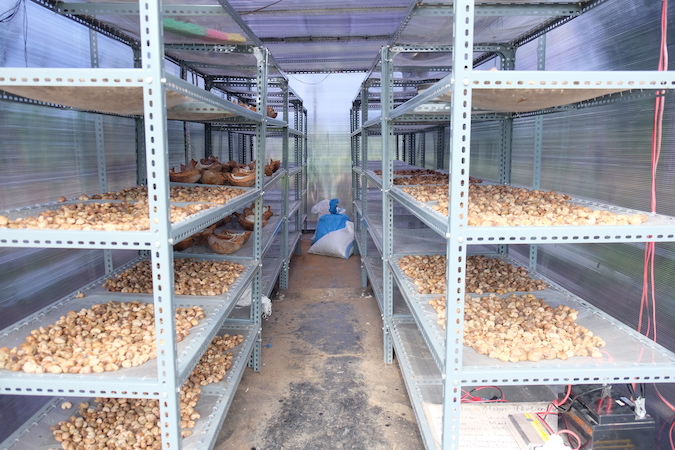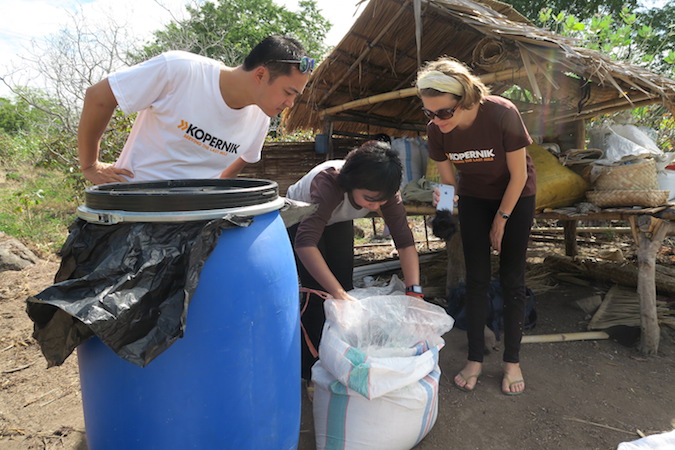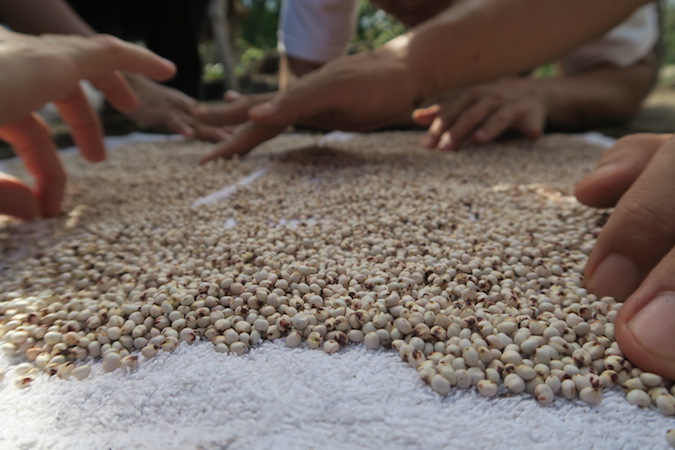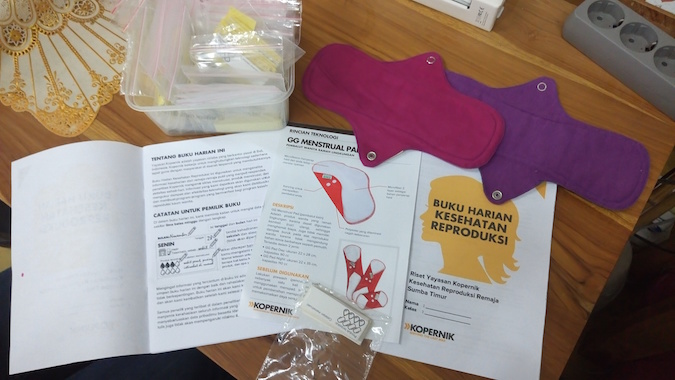With the New Year comes new year’s resolutions, new beginnings and excitement for what the year ahead may bring. For Kopernik, 2017 is a year full of innovation potential. This year we are throwing ourselves headfirst into a new series of projects that we call ‘experimental’ projects. Why experimental? Because only by testing and experimenting with ideas will we find a solution that works.
“WE VALUE BOLD IDEAS THAT CHALLENGE THE STATUS QUO”
This is the first statement governing Kopernik’s culture and our new projects go far in meeting this drive for innovation. We are finding and implementing small-scale, low investment experiments to find real solutions that work on a practical level for people living in the last mile. Additionally we pledge to share the results of these tests with our partners and peers to maximise the impact of our work.
While working in the last mile over the years, we have learned that agricultural processing efficiencies is a persistent challenge facing smallholder farmers. Our recently released ‘Unmet Needs Research Report’ highlights the demand for practical solutions that can assist smallholder farmers across Indonesia to improve farming processes and, in turn, increase their income.
In response we have developed a number of experimental projects to try to resolve some of the more common issues. One example tests whether a simple solar dryer built from locally available materials can dry commodities faster and with higher quality results when compared to traditional practices often used in East Flores, Indonesia.
Another project tests whether solar drying when combined with tiered fermentation boxes will increase the price of cacao for farmers in Bali, Indonesia.
We are also experimenting with low-cost hermetic storage bags and sealed plastic containers to learn whether we can reduce the loss of stored grain to weevils and rodents and increase food security for families.
Kopernik will initially be addressing challenges related to Agriculture, Water, Sanitation & Hygiene and Energy under the guiding framework of the Sustainable Development Goals (SDGs).
But we are not only interested in direct product testing but also in projects that encourage positive behavioural changes. An example is our recent Promoting Menstrual Health project.
We learnt that in rural Indonesia, 69% of girls missed an average of two days of school during their last menstruation period due to difficulties related to menstrual health and management (Burnet Institute, 2015). If we can find an appropriate reusable menstrual hygiene pad on the market, will making it accessible to girls in the last mile, have an effect on their school attendance? Well, let’s test it and see.
Kopernik was founded, and continues to exist, upon the belief that more effective solutions are needed to solve persistent development problems that directly affect the ability for those living in last mile situations to prosper. The knowledge that Kopernik is a dynamic organisation that won’t rest on its laurels and will always choose to adapt to meet more ambitious goals is what attracted me to work here. Our new experimental approach means exciting times ahead for me, my colleagues and ultimately those living in the last mile.






